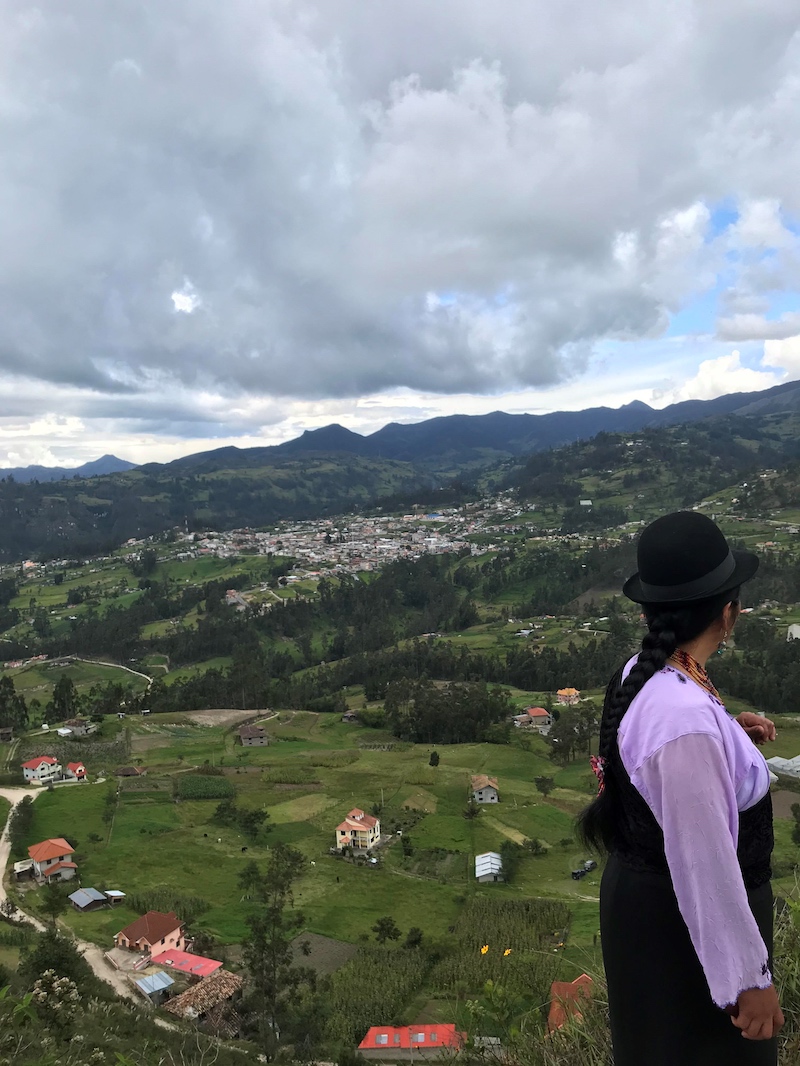Understanding National Politics (with some killer pictures from Saraguro)
“Neither the life of an individual nor the history of a society can be understood without understanding both.” – C. Wright Mills
Here’s a beautiful landscape in Saraguro to catch your attention!
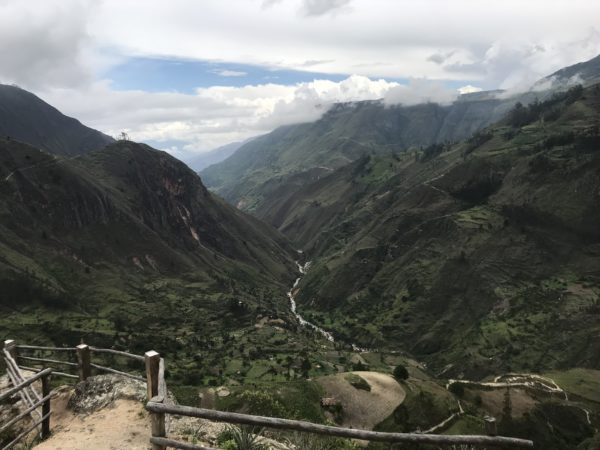
Saraguro, Ecuador
As my trip in Ecuador is beginning to wind down, I really want to impart some of the knowledge that I’ve picked up through my journey. Some of the most important knowledge I’ve gained concerns the creation of the Ecuadorian culture and reality. If you haven’t seen it, here is a really good analogy between a society’s culture and all the aspects that make it up. That being shown, living in a country really familiarizes one with several different aspects that form a unified culture, from language to history and attitudes. Personally, I believe that political history is one of most important notions that one could follow to understand the beliefs and attitudes of a culture.
Just as a side note (and I think I’ve mentioned this before), but I would also wholeheartedly recommend getting into the music of whichever culture you want to experience. I’ve become a pretty big fan of reggaeton, bachata and merengue music since I arrived here. It’s also good practice with the language and gauges the mood/values of the culture.
One trait I’ve noticed of the current political administration in Ecuador is that every week or so, President Lenin Moreno holds a program akin to Franklin Roosevelt’s “Fireside Chats” back in the USA in the early 1900s. Personally, I loved this idea and thought it was really neat to see happening. My host family (and several other Cuencanos that I’ve spoken to) can’t STAND it. They think it’s a waste of time and that it’s all filler. “Es más tranquilo que el programa de Correa…” and therein lies the key! A history lesson! Correa held the same chats, but a lot more frequently. This brief bit of history explains one behavior and general attitude towards the government… but that’s only the beginning.
The political mood of a nation is important for getting around and having insightful discussions with the locals. It’s pretty easy to talk politics with Ecuadorians right now, as they’re a bit more excited with the new presidency of Lenín Moreno. It´s been a bit of a crazy news cycle recently with the increased FARC activity at the border, but nonetheless I thoroughly enjoy speaking with the locals about their politics and history. This might just be me, but a lot of times I view the fact that I’m a foreigner and don’t COMPLETELY understand Spanish as a sort of shield against awkwardness in conversations. Say something weird or unpopular and OOPS, sorry, I don’t understand the language. Anyways, history. I suggest finding someone that you can talk to without reservation about the political mood and climate, and I assure that it’ll help you along your way.
Another interesting trait that I´ve come to realize is that the Ecuadorian people are very willing to mobilize in order to defend their national pride; there are often peaceful demonstrations in certain parks (though I’ve only seen one or two in Cuenca), and this speaks to the incredible solidarity among Ecuadorian people. Events in the nation like 30-S and a seeming turntable of presidencies since 1996 have created a hard-skinned, proud Ecuadorian people. Now of course, a lot of my observations are based off of my host family or Cuencanos, but I think the principle still stands that the political climate of a nation molds its citizens, for better or worse.
For any culture, understanding its past twenty years in respect to politics and history is going to assist you. Not just in conversation and the avoidance of awkward conversations, but you’re also going to take that bit of the iceberg and keep it, growing just a bit closer to a full understanding of a previously unknown culture. It’s incredible!
To broach a QUITE different topic, I visited Saraguro last week and really loved this unique indigenous community! It’s viewed as a model of solidarity and governmental efficiency by the national Ecuadorian government due to its customs and strict societal order. The featured image is a breathtaking view of the Saraguro region with an added bonus of our traditionally dressed guide. Pictured below was a little farming hut on top of a mountain, being slowly and eerily encroached by fog.
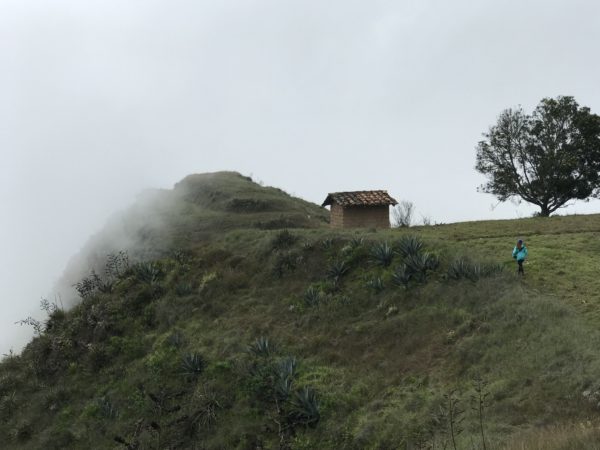
Here, we got to experience an indigenous cleansing ceremony and “florecimiento” (or celebration of a fertile harvest).
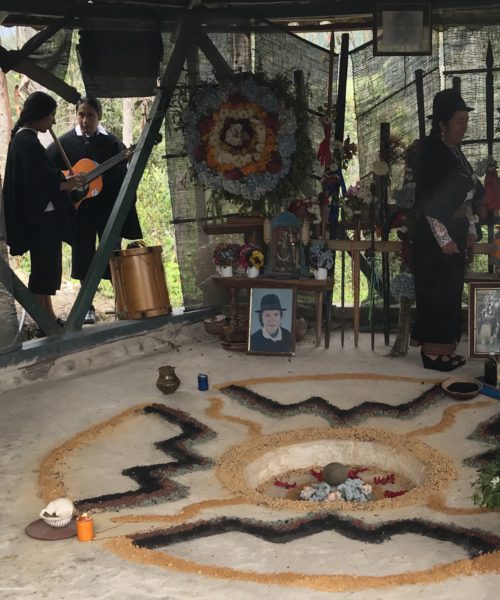
Lastly, we partook in a strictly traditional Ecuadorian meal of bread, cheese, potatoes, eggs, and Cuy. It’s a special meal in Saraguro, and it was especially delicious.
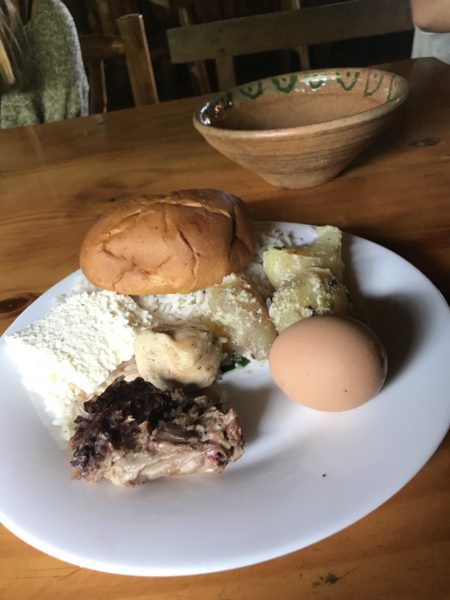
SO, I hope you’ve taken SOMETHING away from this blog post, and feel free to contact me about anything concerning international politics (or Ecuador)…I’m a fan of discussion! Thanks for reading!

